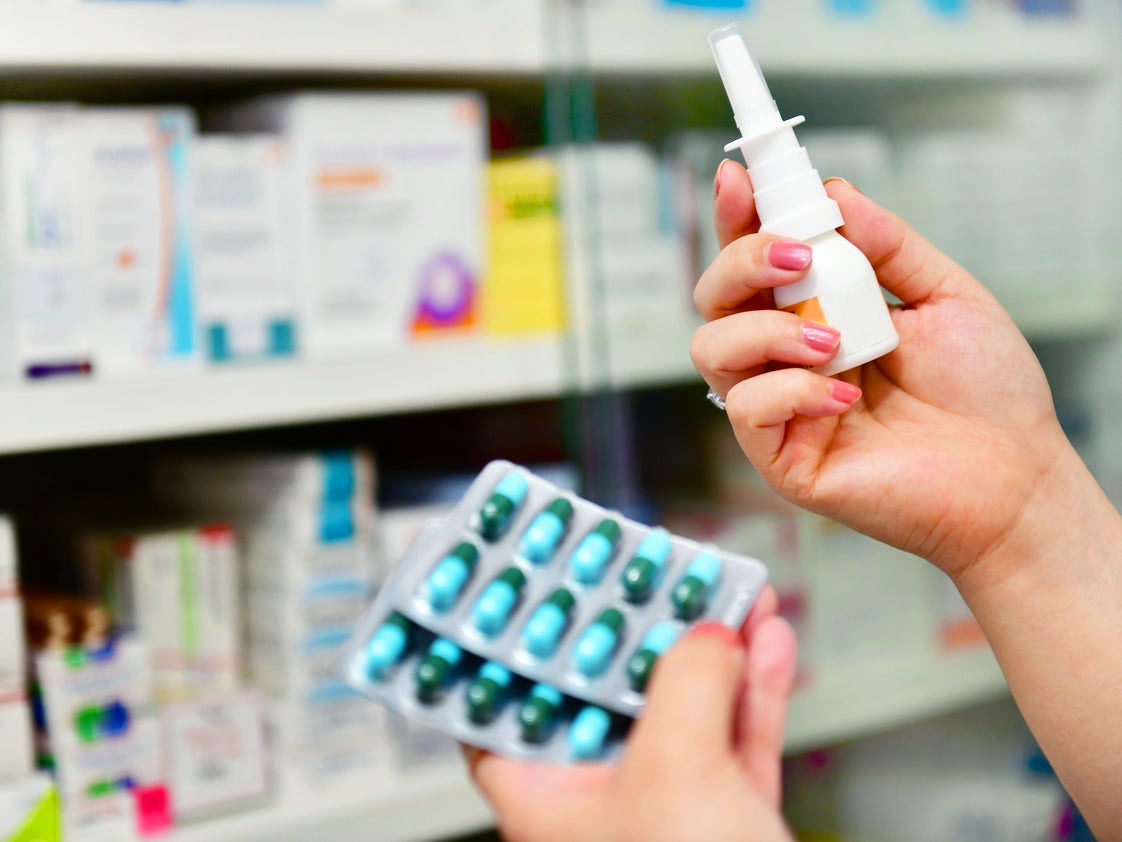UK rivers contain traces of 29 pharmaceutical drugs, finds study
Compounds included antidepressants, antibiotics and medicines to treat epilepsy and diabetes

Your support helps us to tell the story
From reproductive rights to climate change to Big Tech, The Independent is on the ground when the story is developing. Whether it's investigating the financials of Elon Musk's pro-Trump PAC or producing our latest documentary, 'The A Word', which shines a light on the American women fighting for reproductive rights, we know how important it is to parse out the facts from the messaging.
At such a critical moment in US history, we need reporters on the ground. Your donation allows us to keep sending journalists to speak to both sides of the story.
The Independent is trusted by Americans across the entire political spectrum. And unlike many other quality news outlets, we choose not to lock Americans out of our reporting and analysis with paywalls. We believe quality journalism should be available to everyone, paid for by those who can afford it.
Your support makes all the difference.Traces of 29 pharmaceutical drugs have been found in rivers in York.
The compounds included antidepressants, antibiotics and medicines to treat epilepsy and diabetes.
The York University team which conducted the study said although the levels found in the rivers Ouse and Foss were extremely low, there were concerns over the long-term implications of the findings.
The samples included drugs not usually available in the UK and thought to have been brought by Chinese and American tourists.
The researchers behind the findings said some drugs were found in levels higher than previously observed across parts of Europe and Asia.
But they added that two litres of river water would amount to about a millionth of a patient’s daily dose of one drug.
The research, published in Water Research and funded by the EU’s Seventh Framework Programme, showed seasonal spikes with higher levels of antihistamines found in the summer and higher levels of drugs associated with cold and flu symptoms in winter.
Professor Alistair Boxall, who oversaw the research, said: ”There isn’t any evidence for impact on human health from pharmaceuticals in rivers, but it definitely deserves more investigation.
“If you compare the levels found in the study with what a patient takes, then the degree of exposure is very low. For example we saw concentrations of metformin – a drug used to treat diabetes – at around 500 nanograms per litre.
“If you drank two litres of this water, you would get about a millionth of a patient’s daily dose of the drug.”
He added: “However, it is important to realise these drugs are being emitted continuously into the environment and we will be exposed to them across our lifetime. There is, therefore, a concern that some may be causing harm.
“It is a really complex issue to tackle and we don’t really have the methods to understand whether long-term exposure to low levels of pharmaceuticals matters or not.”
Professor Boxall said there were also questions about the impact of the drug traces on the ecosystem.
Join our commenting forum
Join thought-provoking conversations, follow other Independent readers and see their replies
Comments